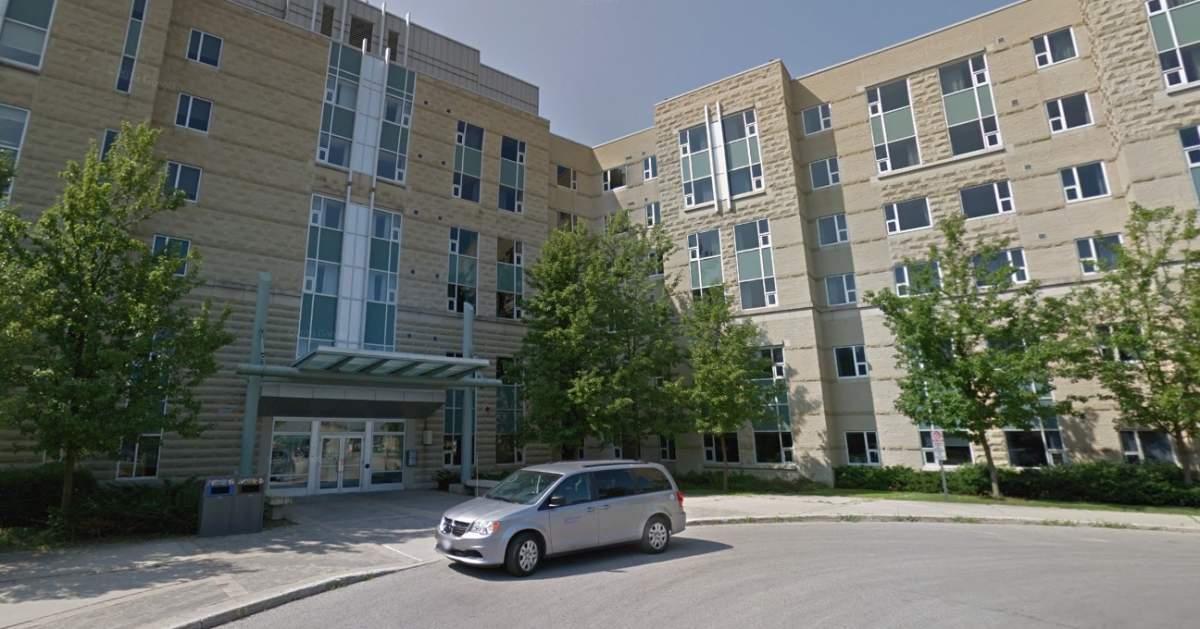Local medical professionals working on the front lines of the COVID-19 pandemic now have another place to stay if they’re concerned about bringing the virus home to their loved ones, or if they’re looking for a place to rest between back-to-back shifts.

With the campus largely shut down and some of Western University’s student residences sitting idle, the university says it’s offering its Perth Hall student residence as a dedicated place for as many as 150 health-care workers to stay as part of an agreement with the city’s hospitals.
It comes weeks after the university made a similar gesture, offering up 40 free rooms at its Windermere Manor Hotel to front-line staff.
With many local medical workers either colleagues or graduates of Western’s Schulich School of Medicine and Dentistry, the move was a natural one for the university, said Lynn Logan, Western’s VP of operations and finance.
“Our health-care workers on the front-line, dealing directly with the virus, we felt we needed to support them as much as we can,” she said.
- What is Nipah virus? What to know about the disease as India faces outbreak
- Head-Smashed-In Buffalo Jump heritage site enjoys boost after shout out on ‘The Pitt’
- Pizza Pops contaminated with E. coli tied to 7 hospitalizations, data shows
- Pizza Pops E. coli recall grows as roughly a dozen products now hit
As of Tuesday, University and Victoria hospitals were treating a combined 27 COVID-19 patients, 12 of whom were in intensive care. Across London and Middlesex, 344 people have tested positive for the novel coronavirus, 149 have recovered, and 22 have died.
About 450 international exchange students remain on campus, Logan said. To support social distancing, those students have all been moved into the university’s suite-style residence buildings to give them their own bedroom and private washrooms.

Get weekly health news
During the school year, the semi-suite-style Perth Hall, located along Western Road next to Althouse College, would typically accommodate around 445 students in single or double rooms, with two rooms sharing a washroom and storage space, according to the university.
As with the remaining students, to support social distancing, one worker will reside in each two-room suite.
“There’s not a lot of activity going on in the residence,” Logan said. “It’s pretty much just a room with a washroom.”
Right now, the number of health-care staff residing in the residence is in the “low teens,” Logan says, but more people are expected.
Logan said the Perth Hall rooms were being offered to those looking to keep their families safe, as well as those looking for a place to lay their head between long, back-to-back shifts.
Several unknowns remain, including how long the university will make Perth Hall and Windermere Manor available to health-care workers. The university originally planned to have them open for three months.
Much of that, Logan says, will depend on how things shake out over the next several months when it comes to decisions around social distancing and what the university plans to do in terms of its upcoming September classes.
“There’s a lot of unknowns and uncertainty at this point,” she said. “But for now, we just want to do what we can to support, and so we’ll make it available for as long as we possibly can”
“The partnerships and the relationships we have in the community, and with our health-care providers and the Schulich School of Medicine and Dentistry, it really, I think, just makes the entire community so proud that we have such amazing individuals willing to do everything that they possibly can.”
Questions about COVID-19? Here are some things you need to know:
Health officials caution against all international travel. Returning travellers are legally obligated to self-isolate for 14 days, beginning March 26, in case they develop symptoms and to prevent spreading the virus to others. Some provinces and territories have also implemented additional recommendations or enforcement measures to ensure those returning to the area self-isolate.
Symptoms can include fever, cough and difficulty breathing — very similar to a cold or flu. Some people can develop a more severe illness. People most at risk of this include older adults and people with severe chronic medical conditions like heart, lung or kidney disease. If you develop symptoms, contact public health authorities.
To prevent the virus from spreading, experts recommend frequent handwashing and coughing into your sleeve. They also recommend minimizing contact with others, staying home as much as possible and maintaining a distance of two metres from other people if you go out.
For full COVID-19 coverage from Global News, click here.
















Comments